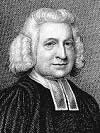Advent is NOT Christmas

Another season of Advent is upon us. Imagine what could happen if the church actually observed and celebrated this season of reflection, repentance, and preparation. Imagine what kind of church we would be if we held off the rush to Christmas and devoted the time to prayer, worship, and repentance. What if the church took the four weeks of Advent to look at itself and its witness in light of the coming reign of God? What if Christians resisted the onslaught of shopping, buying, feasting, and consumption in favor of fasting, prayer, giving, and serving with the poor during the weeks of Advent? What if rather than buying gifts for their families and friends Christians gave their money to the Salvation Army, UMCOR, Heifer International, Bread for the World, or Habitat for Humanity to alleviate the suffering of the poor? What if Christians and the church actually sought to prepare themselves for the coming reign of God on earth as in heaven?
We do damage to our life together as church when we bypass Advent and rush to Christmas. We need those four weeks of reflection, repentance and preparation for the coming again of the Lord Jesus Christ. That is what Advent is really about. It is only secondarily a time of preparation for celebrating the birth of Jesus. This season is the church’s time to look at itself, at our life and our witness in light of the coming kingdom of God. Are we prepared for the coming end of history when Christ returns in glory to claim his Church and planet Earth for himself?
The United Methodist Hymnal contains several Advent hymns (#196-#216). These hymns are a good resource for helping people to understand the meaning of the season; that it is not Christmas and it is not primarily about looking to the past but looking toward the future. Here’s what I’d call an Advent song that will probably never be found in a hymnal but would be very appropriate to perform in worship on the first or second Sundays of Advent. This song was written by Bob Dylan during his Christian period in the early eighties. It appears on his second Christian themed records, “Saved.”
Are You Ready by Bob Dylan
Are you ready, are you ready?
Are you ready, are you ready?
Are you ready to meet Jesus?
Are you where you ought to be?
Will He know you when He sees you
Or will He say, "Depart from Me"?
Are you ready, hope you're ready.
Am I ready, am I ready?
Am I ready, am I ready?
Am I ready to lay down my life for the brethren
And to take up my cross?
Have I surrendered to the will of God
Or am I still acting like the boss?
Am I ready, hope I'm ready.
When destruction cometh swiftly
And there's no time to say a fare-thee-well,
Have you decided whether you want to be
In heaven or in hell?
Are you ready, are you ready?
Have you got some unfinished business?
Is there something holding you back?
Are you thinking for yourself
Or are you following the pack?
Are you ready, hope you're ready.
Are you ready?
Are you ready for the judgment?
Are you ready for that terrible swift sword?
Are you ready for Armageddon?
Are you ready for the day of the Lord?
Are you ready, I hope you're ready.
Copyright © 1980 Special Rider Music




